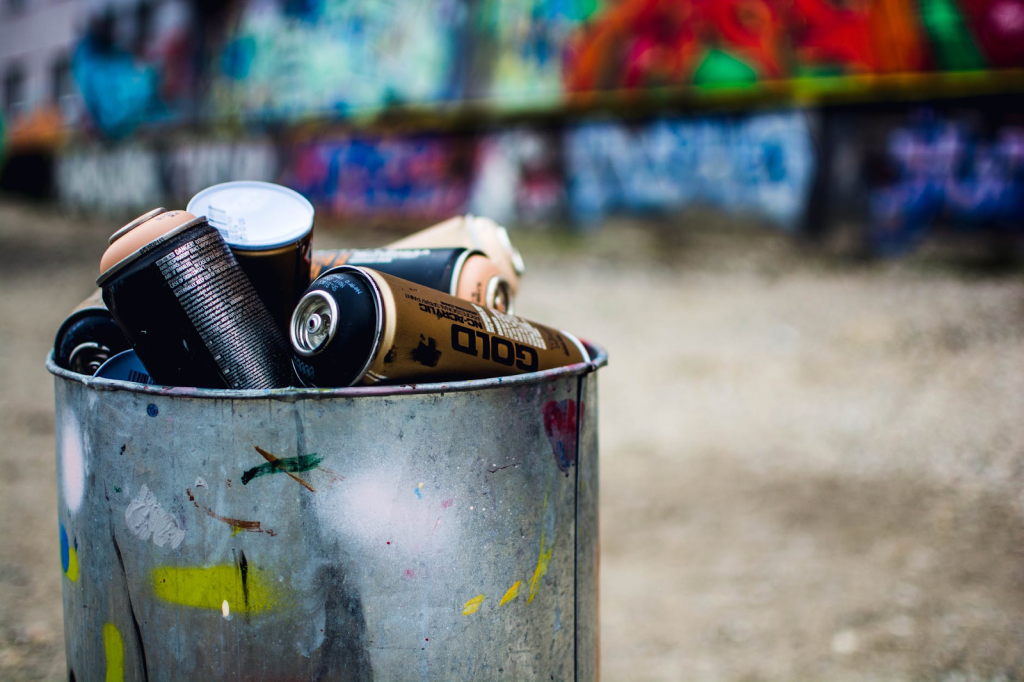Will Painting Over Rust Stop It?


Yes, rust can be stopped from spreading by painting over it. When painting over rust, however, ensure to properly make preparations for the surface and apply the appropriate paint. Iron oxide is likewise every other call for rust. When oxygen comes into touch with iron in the presence of water, rust forms. Water enhances the reaction’s conduction, whilst salty water promotes the corrosion pastime a long way greater. Paint acts as a barrier between the steel’s iron and the oxygen and excess moisture. You could block moisture and oxygen from having touch with the iron by sealing it with paint. As a result, corrosion is mitigated. Examine on as we have rounded up everything you want to know about painting over rust.
What are the Paint Types Recommended for Rust?
While most types of paint will appear to cover rust when applied, unless it is completely sealed, the rust will eventually emerge. But, no paint will conceal rust indefinitely besides if a suitable primer is used first. Alas, this shape of rustproofing isn’t always appropriate for all paints. Only specialized kinds of paint ought to be used only after rust has indeed been dealt with. Take a look at the listing below that offers a variety of paint sorts to help you beat rust in metal.
Primer
Preparation is vital to the effective application of any high-performance paint system, and rust-inhibiting metal primers are a crucial component of any maintenance and repair systems in the manufacturing, rehabilitation, and real estate sectors. Applying paint to unprepared regions can cause the paint topcoat having not had anything to grasp, requiring the complete paint system to be peeled returned, and repainted to a newly prepared area.
Epoxy Paint
Epoxy paints are beneficial for beginners that do not want to use oil-based paints. Epoxy is similar to enamel in terms of strength, but it’s less complicated and better to handle. Epoxy coatings are also used to restore corroded surfaces that have been primed the usage of latex iron oxide primers. It needs to no longer be used over iron oxide primers which can be otherwise oil-based totally.
Oil-Based Enamel Paint
Finishing primed, rusty surfaces with oil-based enamels is a smart option. Oil-based enamels are exceptionally long-lasting and have a subtle shimmer. In addition, oil-based iron oxide primers would not respond to acrylic latex paints. Surfaces primed with oil-based coatings should never be painted with water-based acrylic paints. They’ll flake off easily when you’ve coated them.
Acrylic Latex Paint
If water-based latex iron oxide primers are applied first, acrylic latex paints could be used to finish rusted surfaces. These varieties of iron oxide primers are relatively new to oil-based iron oxide primers and are easier to apply. Water-based iron oxide primers must not be painted over along with oil-based enamels. Enamel paint is more resilient than acrylic latex paint. It is, however, less clumsy and the application is more manageable.
How to Paint Over Rust?
Painting over rusty items or outdoor furniture is not quite as challenging as it may appear. Since each piece is unique, take these steps to ensure a successful home Repair job. Below are some suggestions from the experts including how to paint over rusted metal.
Evaluate the Structure of the Metal
Examine the amount of rust. If the rust is only on the surface and can be removed by gently brushing, the paint will last longer. However, if the rust is widespread, you may have to consider replacing completely. If the rusted area is flexible or malleable, it’s too far gone to paint. Regardless of how good the primer and paint are, if a piece of metal has rusted past the breaking point, it is indeed best to replace it.
Remove the Flaking Rust
Once you can proceed to prime and paint your work, you’ll have to eliminate all of the corrosion and start from scratch. Instead, your new paint job would have an irregular structure and may flake. Wire brushes and sandpaper are extremely useful for cleaning corroded steel. Carefully scrape the rust with a wire brush a few times, or until all of the rust flakes away. Then, wash the surface with heated water and wipe it down with a gentle clean rag to remove any residual dirt and oil leftover from rust corrosion.
Prime the Surface
An excellent primer is essential for getting the paint to cling to the metal once the rust has been eliminated. Let the area dry after washing it with water. Then, use an oil-based rust conversion metal primer to thoroughly paint and cover the area.
Apply the Paint
Painting over rust can have a range of appearances and effects depending on your aesthetic. Using a spray can paint on corrosion can offer you a far more equal texture than a normal paintbrush. The use of a spray can for painting results in a more uniform and highly qualified paint job. It will also perform an outstanding job of coating each spot in difficult-to-reach areas.
Is Spray Painting Over Rust Suggested?
Yes, rust can be painted over with spray paint. Take the time to properly prepare your surface before painting. Spray paint surface preparation is essential and the best predictor of how long your new paint coating will persist. Rust is an inconvenience, but it doesn’t have to hinder you from spray painting a surface. Until you can begin spray painting, you must first eliminate the rust and condition the surface.
How to Prevent Rust from Reoccurring?
You’re probably thinking about how to eliminate future rust after you’ve handled your corrosion. Check out these tips from the experts on how to prevent rust from reoccurring once the surface has been painted.
Change the Environment
If you notice a lot of rust near a door, it’s possible that a gutter isn’t working properly. If corrosion is forming on a mower, try keeping it in parched storage rather than just a damp barn. Often modifying the surroundings is all that is necessary.
Check for Possible Problems
If you notice a minimal rust spot developing, restore it as quickly as possible. Once rust develops, it does not take long for it to go out of control. If you pluck the corrosion while it’s small, like weeds in a yard, you’ll prevent your metals from being overtaken.
Consider Using Wax
Waxing the paint will keep it pliable and prevent cracking. Additionally, wax causes water to evaporate. Recommend using wax to slow down the corrosion activity if at all feasible.
